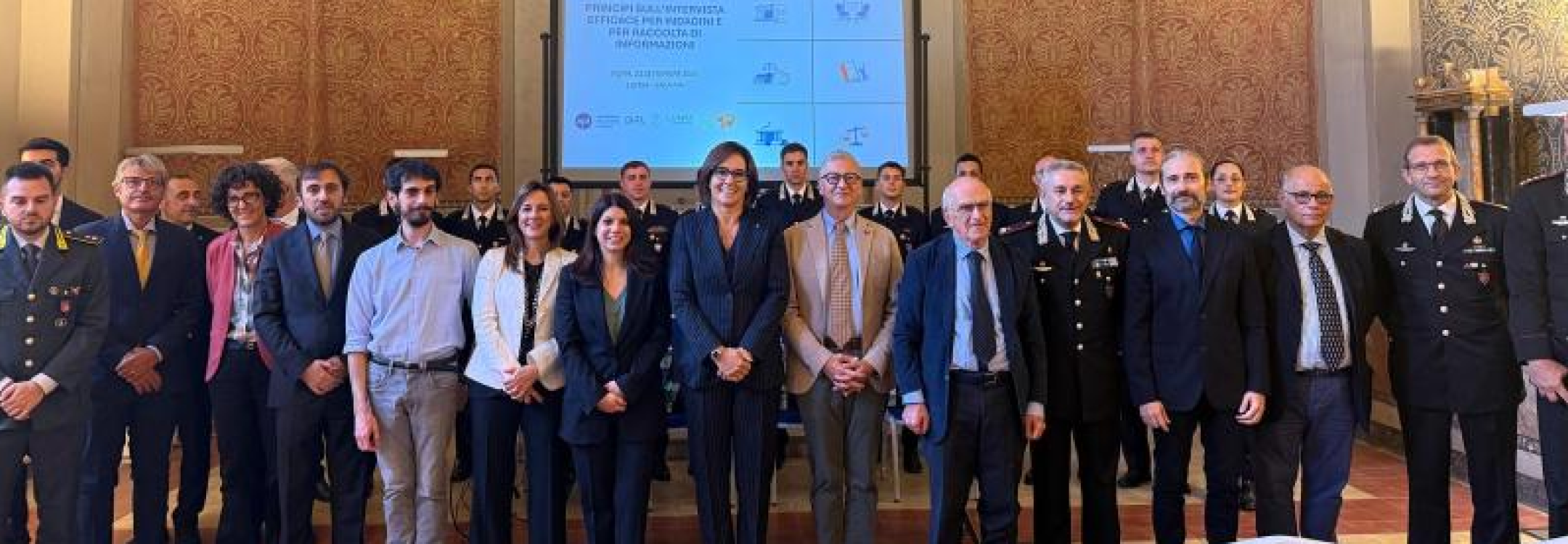
On 23 September in Rome, the National Guarantor for the Rights of Persons Deprived of Liberty (GNPL), the Association for the Prevention of Torture (APT), the Department of Human Sciences of LUMSA University, together with the Carabinieri Officers’ School of Rome, hosted a roundtable dedicated to the Méndez Principles.
The event marked the launch of the Italian translation of the Principles—prepared by GNPL and partially supported by the European COST Action “IMPLEMENDEZ”—and created a platform to discuss their dissemination and implementation in the Italian context. Participants included representatives of public authorities, law enforcement officials, justice practitioners, and academics.
The Méndez Principles are reshaping approaches to information gathering, justice, and the prevention of torture. Discussions in Italy recently highlighted several critical insights: coercive methods fail, cultural change is essential, and respect for human rights strengthens investigations.
Coercion versus evidence-based approaches
Nicola Palena, Postdoctoral researcher in the Evidence-Based Policing (What Works) Research Group, NSCR and member of the Management Committee of IMPLEMENDEZ, highlighted the practical impact of coercive versus scientific techniques:
“Since 1989, 375 innocent people have been exonerated in the USA thanks to DNA evidence. Twenty-nine percent of these cases involved false confessions. The Méndez Principles offer six principles to prevent this. One clear lesson: coercive techniques fail where scientific approaches succeed.”
The importance of cultural change
Implementing the Principles requires more than legal compliance—it demands a shift in professional culture. Letizia Caso, Professor at LUMSA University and member of IMPLEMENDEZ, explained:
“The Méndez Principles pose challenges that demand a profound cultural change, while at the same time offering great opportunities to improve information gathering without compromising respect for human rights.”
Respect for human rights strengthens investigations
Effective interviewing and human rights protections are complementary. Alessandro Albano, Head of Unit Studies, National and International Relations Office of the National Guarantor for the Rights of Persons Deprived of Liberty, noted:
“The idea behind the Méndez Principles is that effective interviewing and respect for rules and human rights are not a zero-sum game: fair-play interviews are better and more fruitful investigative tools. A small Copernican revolution, which—like all such shifts—requires a long time to take root in minds before it can take root in legal codes and practices.”
Advancing professional practice in Italy
Discussions in Italy demonstrated the potential for the Méndez Principles to guide interviewing approaches that are both effective and respectful of human dignity. Valentina Cadelo, APT Senior Adviser Law and Advocacy, said:
“This round table was an important step to start a constructive dialogue on how the Méndez Principles can effectively assist Italian authorities to make investigations more effective and effectively prevent torture and ill-treatment under any circumstances. We look forward to continue this productive cooperation with all the authorities and participants involved.”
The lessons are clear: coercion is ineffective, cultural change is necessary, and respect for human rights enhances investigative outcomes. The Méndez Principles provide a practical framework for achieving justice that is both effective and fair.
